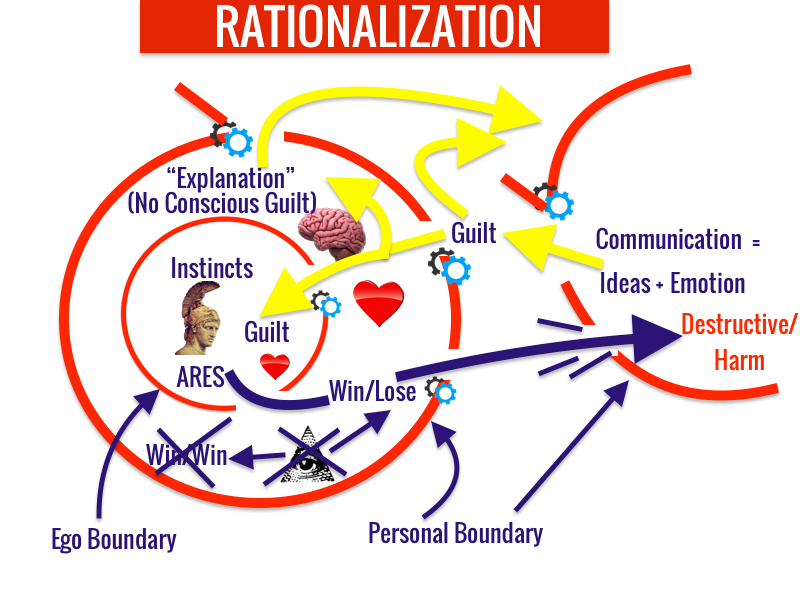You might see this social habit as being somehow related to the much more primitive, “denial,” in that it is an automatic, unconscious attempt to excuse one’s self from culpability for a moral failing or mistake. Anyone who has ever been in a love relationship knows it well, both from doing it, and being on the receiving end. It causes us to continue to function without guilt, and deal with the aftermath later.
Unlike the more primitive, denial, it does acknowledge that a negative social occurrence has happened, but it automatically shifts the question, “why?” to somewhere else for the purpose of not having to deal with emotions arising after a bad decision. Guilt has a very useful purpose in our growth of a conscience, as we’ve seen, but it can also be overwhelming, and get in the way of success at our goals. When the Superego that Freud talked about is overgrown, guilt can also do us harm and make us ineffective as partners by punishing us.
Convincing oneself that no wrong has been done or that everything will be all right may be the verbal explanation to others, or the silent mantra whispered to ourselves, but it arises out of inaccurate assessment and erroneous reasoning. This social habit is all about “convenient excuses,” and you have seen and done it many times. While you may come out appearing on the surface as courteous or collaborative, somewhere inside your partner or your social connections will sense that something is just not right with your explanations. When they are repeated numerous times in similar scenarios, it will eventually become “an issue” with them and they will become conscious of your impairment.


